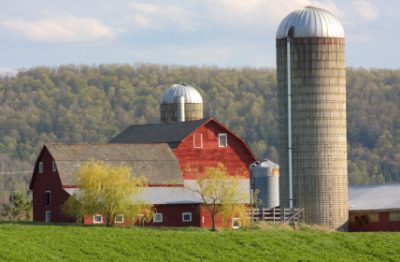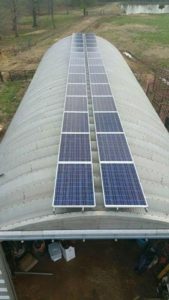Recently, the United States Department of Agriculture (USDA) Rural Development announced three renewable energy projects in southeast Tennessee will receive funding from the Rural Energy for America Program (REAP).
REAP provides guaranteed loan financing and grant funding to agricultural producers and rural small businesses for renewable energy systems, or to make energy efficiency improvements. In addition, this funding helps rural businesses become more competitive by reducing energy costs and allowing them to participate in an ever-growing renewable energy environment.
“I applaud the efforts of farmers and small business owners looking at ways of improving the financial stability of their companies while limiting environmental impacts,” said Bobby Goode, USDA Rural Development State Director. “Their environmental-friendly efforts will produce clean, green energy as they serve their customers.”

The three REAP project recipients announced include:
- Gregory S. Taylor, Marion County. Taylor is a poultry farmer. A $20,000 REAP grant was used to install a 39.68 kW solar array in two poultry houses that will produce enough power for five households, for a year.
- Russ Carmichael, McMinn County. Carmichael’s dairy farm in Riceville received a $7,250 REAP grant to assist with the installment of a 14.1 kW solar array, which is an expansion of an existing 35 kW solar array installed in 2013.
- Dunlap Industries, Inc., Sequatchie County. Dunlap is an American-owned manufacturer of zippers, thread, and hook-and-loop. It received a $126,092 REAP grant to assist with the installation of a 258.85 kW solar array to be mounted on the roof of an existing building on the property.
Projects like these increase American energy independence, by increasing advanced energy use and decreasing the demand for energy through energy efficiency improvements. Over time, these investments can also help lower energy costs for small businesses and agricultural producers. 
According to the American Council for an Energy Efficient Economy, in recent years, energy efficiency programs targeting agriculture and rural communities have become more prevalent nationwide. New organizations specifically dedicated to improving efficiency on farms, ranches, and rural small businesses have emerged, and existing programs are widening their focus to include rural energy efficiency issues. Via rebates for energy-efficient farm equipment, providing online or on-farm audits, or lending technical or financial support, these programs play a key role in aiding producers and rural businesses in reducing their costs, oftentimes allowing them to stay afloat during periods of skyrocketing fuel prices. In turn, these successes lead to increased rural economic development, food security, reduced dependence on foreign energy sources, and improved environmental quality.
Visit the USDA Rural Development website for more information on USDA Rural Development activities and programs available in Tennessee.
